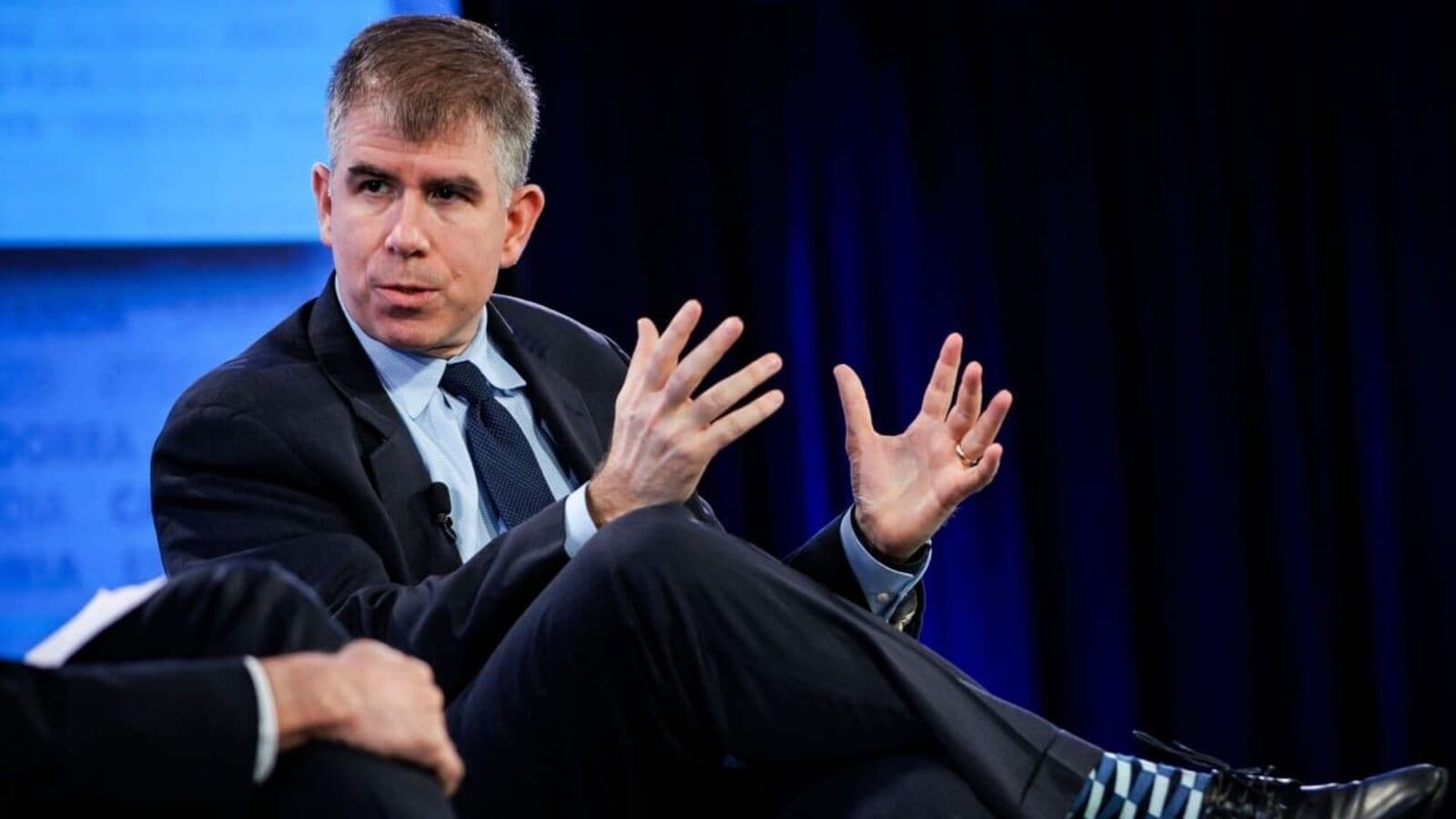President Biden and President-elect Donald Trump both advocate a tough stance on China, but have substantially different strategies on how to interact with Beijing.
Before Trump took office in early 2017, the two governments had over 90 official channels of communication. He and his team had little patience for such formalized communication, seeing them as a way for China’s leaders to suck the U.S. into endless discussions that yielded little meaningful change in policies seen as harmful to American workers and businesses. By the end of Trump’s first term, such channels had dwindled to virtually zero.
The Biden administration, in an effort to reset relations strained by the countries’ geopolitical rivalry and exacerbated by the Covid-19 pandemic, has re-established dialogue with Xi Jinping’s government in recent years, with some two dozen high-level channels covering topics from economic and financial matters to security and climate change.
Jay Shambaugh, Treasury’s undersecretary for international affairs who has held seven rounds of economic talks with Beijing, said such dialogues have enabled Washington to press Beijing on issues of deep concern to the U.S., such as China’s industrial overcapacity, even as the administration this year has raised tariffs on Chinese steel, electric vehicles and other products that have flooded world markets.
“Just because we’re talking doesn’t mean we don’t continue to take defensive actions,” Shambaugh said in an interview.
A number of foreign-policy analysts in both the U.S. and China don’t expect the coming Trump administration to keep the meetings the Biden team established going. “It’s hard to imagine the continuation of the present near-strategic and economic dialogue,” Ian Bremmer, founder and president of political-risk consulting firm Eurasia, wrote in a recent note to clients.
In a statement, Karoline Leavitt, spokeswoman for Trump’s transition team, said China is “crippling our manufacturing industry” and listed a number of other Chinese actions seen as hurting U.S. interests. She said, “The American people elected President Trump to stand up to China, enforce tariffs on Chinese goods, and make America strong again. He will deliver.”
Beijing sees dialogue as always in its interest and prefers the predictability offered by a recurring mechanism.
Last year, Treasury Secretary Janet Yellen and her counterpart, China’s Vice Premier He Lifeng, who has a direct line to Xi, announced two channels for economic and financial dialogue, with topics including macroeconomic policies in both countries, China’s economic support of Russia, and joint anti-money-laundering efforts aimed at reducing human and drug trafficking.
In recent months, Treasury officials have used the dialogue to build on Yellen’s warnings during her April visit to China that output by China’s enormous manufacturing machine has gotten too large for the world to absorb.
Beijing has ramped up manufacturing capacity even as domestic demand plummets, sending its excess overseas and prompting many of China’s trading partners to raise tariffs and other trade barriers to fend off cheap Chinese goods.
Shambaugh said his team has used the talks to explain to senior Chinese officials the “large spillover as a result of your policies.” He said Treasury officials have argued that it is in China’s own interest to reduce excess capacity and to boost demand at home.
“We don’t think they’re moving far enough,” Shambaugh said, while noting that Beijing recently listed consumption as an economic priority.
Shambaugh said the Treasury team has also used dialogue to express significant concerns over Chinese firms’ support of Russia.
The U.S. this year has been drafting sanctions that threaten to cut some Chinese banks off from the global financial system—threats officials hope will stop Beijing’s commercial support of Russia’s military production.
View Full Image
“Our Chinese counterparts recognize that processing of financial transactions would be an area of very serious sanctions risks for their financial institutions,” Shambaugh said. “We still have lots of concerns and we’ve continued to use the channel for dialogue to push on that.”
He said he is hopeful the incoming administration will continue this form of contact “to make progress on defending U.S. firms and workers from Chinese policies that we think have spillover to the U.S.”
Brent Neiman, the senior Treasury official who leads the department’s financial dialogue with Beijing, said the channel has enabled experts from several agencies, including the Federal Reserve and the Federal Deposit Insurance Corp., to conduct “deep dives” on issues such as how to protect global financial stability if an important bank were to get into trouble in either country.
Ahead of Trump’s return to the White House, Chinese officials have repeatedly tried and failed to get access to Trump’s inner circle.
With virtually no backchanneling between Beijing and the Trump team, the Chinese leadership is trying to figure out whether Trump 2.0 intends to use tariffs as a way to negotiate a trade deal with Beijing, or to move the U.S. economy further away from China’s.
Beijing has little experience with or appetite for thinking outside the box when it comes to interacting with Washington. Chinese officials like to stick to established protocol to minimize political risks for the leadership.
While Trump recently broke with precedent by inviting Xi to his inauguration next month, for instance, the Chinese leader isn’t planning to attend even though some observers say his acceptance of the invitation could help ease bilateral tensions.
One person familiar with the matter said people from the Trump team have indicated to the Chinese side that they would like to interact directly with Xi’s top aides—particularly Cai Qi, the leader’s chief of staff—as opposed to going through the formal diplomatic channels. Such a proposition is a sharp departure from established ways of interacting, and one Beijing isn’t ready to accept.
“Don’t they know how China works?” the person said.
Write to Lingling Wei at Lingling.Wei@wsj.com


